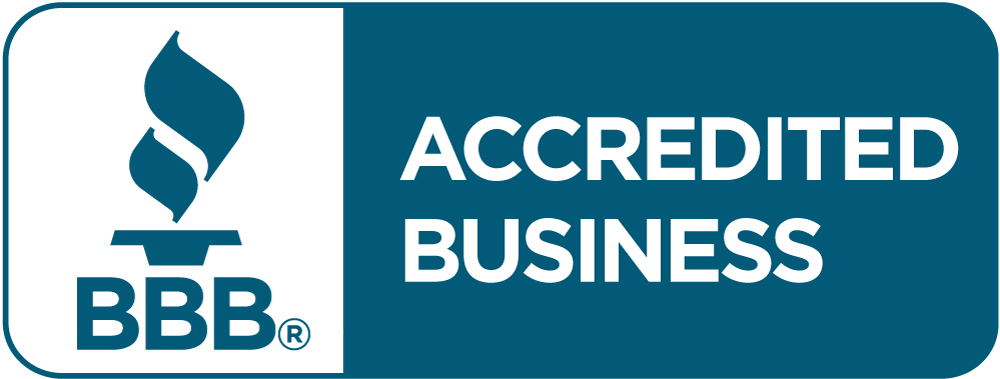Quick Links
ToggleIf there’s anything business owners have learned from the recent Covid-19 pandemic, it’s that you never know what challenges or calamities you could be faced with the next day. Even though you can never predict what obstacles may cross your path, there are measures you can take today to future-proof your business for the uncertainties of tomorrow.
In this guide, we take a closer look at the uncertain times your business could face, as well as the significant impact these can have on your bottom line. We also provide you with the top strategies that can help your company prepare for such uncertainties.
Common Business Uncertainties and How They Can Affect Your Operations
Uncertainty in business refers to scenarios in which companies experience difficulties that cannot be predicted or assessed. As a result, businesses can find it difficult to anticipate their performance during these times.
Below, we’ve included some of the most common business uncertainty examples that you should be aware of, along with how they can affect your operations.
A threat to cash flow due to the current economic climate
The economic climate is often unpredictable. Whether it’s inflation or a recession, for example, businesses have to be prepared for these uncertainties.
A change in the economy could mean that consumers have less money in their pockets and are spending less on your offerings. When cash flow runs low, businesses may find themselves having to cut back on spending, lay off employees, or close down their operations. In extreme scenarios, insufficient cash flow caused by a challenging economic climate can even cause some business owners to file for bankruptcy.
Having to contend with a new competitor entering the market
There are many ways that a new competitor in your market space can cause havoc on your business. For example, they could undercut your prices, have a bigger budget for marketing (thus allowing them to build better brand awareness and recognition), or have a wider range of products or services available than you do.
These are all things that could undermine your business’s ability to compete successfully in the marketplace, especially if it results in your current customers starting to choose the new competitor over you.
Customer demand could change in response to world events
World events can also have a significant impact on customer demand, and as a result, how your business operates. These events might include global pandemics, war, terrorist attacks, or even extreme shortages of vital resources (such as water or gas, for example).
If a global pandemic results in widespread travel restrictions and quarantine protocols, for instance, your business will likely see a reduction in customer demand if you’re based near areas that have been affected. People may also be less willing to spend money on luxury items during times of war or conflict.
Destruction of your business due to natural disaster
Natural disasters can be very costly to your business. If the office building or warehouse is affected by a natural disaster, it can cause major loss or damage to property. The same is true of equipment and inventory at those locations.
Not only can a natural disaster significantly disrupt your operations, but if your business didn’t have adequate insurance, it can also leave you in dire financial circumstances.
Stricter industry regulations due to government policy changes
If your business is in a regulated industry, sudden changes to government policy can have a big impact on your bottom line.
For example, this could mean that you have to start paying more for licenses and permits or invest in new equipment. Tighter regulations could also mean you have to spend more money on staff or additional training programs.
Loss of revenue due to a data breach
A data breach is when someone takes confidential data, such as your customers’ personal information, without your knowledge or authorization. Often, it is for malicious purposes, such as extortion.
A data breach can dramatically affect your company and make you lose a large portion of your customers—as well as revenue—due to loss of trust.
Difficulty in borrowing money or paying off existing loans due to interest rate rises
If you have a business loan, it’s likely that you pay interest on that loan. As the interest rate goes up, so too does the cost of borrowing money for your business.
If your business needs to borrow money to fund growth or expand its operations, then higher interest rates will make that more expensive for you. It could even prevent growth altogether if it becomes too costly to obtain loans.
How to Manage Uncertainty in Business?
Now that you have a greater understanding of the types of uncertainties your business could face, as well as how they can significantly impact operations, it’s time to turn our attention to exactly how you can minimize these risks for your organization.
No matter what kind of business you run, there are a few key strategies that can help your company prepare for uncertain times and take advantage when conditions get better.
1. Understand your biggest risks, then implement new policies
Risk management is an important part of being prepared for any uncertain times that may arise. If you don’t know what will happen, it’s hard to prepare for it.
Risks are anything that could negatively affect your business or its operations, including external factors like a natural disaster, pandemic, economic downturn, or changes in market conditions, for example. Your business should have measures in place for handling these risks so that you can minimize the negative impacts on your operations—sooner, rather than later. This includes working with employees and other key stakeholders on how best to respond in case of a crisis situation.
Your contingency plan should also factor in how long your business may be impacted for, and plan accordingly.
2. Involve your employees in key decisions during uncertain times
When the business climate is uncertain, it’s important to involve your employees in key decisions. Doing so helps them to see the importance of their role in your business. It also gives them a sense of purpose and keeps them motivated, even when the future seems uncertain.
You should also provide training and support to your employees to help them better manage uncertainty. Additionally, focus on building a strong team and fostering a collaborative environment. This can help prevent feelings of isolation or anxiety and make everyone feel like they’re part of something bigger than themselves.
3. Be proactive and transparent with customers
If uncertain times are on the horizon, it’s important to communicate with your customers as soon as possible. You want them to know what’s going on and how it may affect them as far in advance as possible.
In uncertain times, customers may feel hesitant about making purchases or signing new contracts with your company. You need to reassure them that you’re willing to take care of them during this time by being transparent about everything from product availability to staffing changes, for example.
Customers appreciate it when the companies they buy from are open and honest with them. It’s also a good way to show that you care about them and their business, which makes them feel respected and valued. This increases the likelihood of their ongoing loyalty—especially once your business is back on its feet again.
4. Keep a close eye on your finances
Another incredibly important thing you should do for your business is monitoring your cash flow. While this is vital all year round, it’s particularly crucial when external factors pose a risk to your livelihood.
If uncertain times impact your business, there’s a good chance it will affect your cash flow first. Therefore, make sure you’re tracking it closely so that you can identify any changes and make adjustments before they become a problem.
In addition to monitoring your cash flow, it’s also important to make sure that you have an emergency fund in place. This is a fund that you can draw from in the case of a crisis. If your business is hit with a major obstacle and you don’t have an emergency fund, it can be difficult to get back on track.
It’s not only important to have a fund in place, but it’s also essential that you know how much money you need and how to access it when the time comes.
5. Consider boosting your cash flow with a small business loan
If you’re looking for a way to get money when your business needs it most, consider a small business loan. They can provide the cash infusion needed to keep your business running.
A merchant cash advance (MCA) is one type of loan that can help businesses in uncertain times. An MCA can be used by companies to cover expenses such as payroll and other business costs. It’s an alternative to traditional bank loans, which require long-term repayment plans that may not work for smaller businesses.
The benefits of a merchant cash advance are that it’s fast and easy to apply for. You don’t have to wait for approval from a bank or credit union, and you can often receive your money from an online lender within 24 hours.
A term loan is another option business owners may consider during times of uncertainty. Whether short-term or long-term, these business loans are repaid over a fixed period of time. Business owners can use a term loan to cover expenses during difficult economic times until sales pick up again.
6. Ensure you have business interruption insurance
Having business interruption insurance is also crucial during times of need. This type of insurance works in many ways. It pays out if your business is unable to operate due to a covered loss (such as flooding or fire). It also covers lost income due to damage or closure of your business and can help cover the costs associated with repairing or replacing equipment and inventory, as well as paying employees while they’re out of work. Additionally, it can cover you for any losses resulting from lost customers during these interruptions.
It’s important to note that business interruption insurance is not the same as general liability or property insurance. It will not cover the value of your personal assets or equipment, but rather focuses on covering your business operations.
7. Build strong relationships with suppliers
The more you build strong relationships with suppliers now, the better off you will be if and when things take a turn for the worst. That being said, there are other companies that can fill in as backup suppliers in case one or two of your major providers go out of business or begin charging higher rates.
You may also want to consider building relationships with suppliers that offer a wide range of products so that if one or two are not available, you can find an alternative with little trouble.
8. Assess the risk to your supply chain
The supply chain is the sequence of events that occur as a product moves from producer to consumer. As a result, the supply chain helps ensure that products are available when customers want them; however, this system also carries risks. Uncertainty in markets is one factor that can disrupt supply chains, and sadly it doesn’t take much for something to go wrong.
Supply chains are vulnerable to disruptions like natural disasters or political unrest because they rely on so many different factors working together perfectly, from transportation systems (including trucks, ships, trains, and planes) to adequate storage space for goods until they reach consumers. Supply chains are also vulnerable to cyber attacks, which can cause huge amounts of damage by disrupting business operations.
This is why supply-chain risk management is such a vital part of business. By planning for and anticipating potential risks, businesses can reduce their vulnerability to disruptions that might otherwise cause significant financial losses.
9. Update your business continuity plan
In a time of uncertainty, it’s important to have a business continuity plan in place. A business continuity plan helps you make the best decisions for your company when things get chaotic and unpredictable. It also prepares you for any scenario that may occur throughout the year, which gives you peace of mind in tumultuous times.
Your business continuity plan should include:
- An up-to-date list of all physical assets owned by the company (e.g., computers, servers)
- Important contact information for key personnel who are essential for day-to-day operations (e.g., IT team members)
- A clear, step-by-step plan for how employees can continue working after an outage or disaster occurs (e.g., an alternate location where you can set up a temporary office)
- A list of all critical business processes that are essential to your company’s success (e.g., how employees handle customer service inquiries or billing issues)
- An up-to-date list of all software applications that are used in your business (e.g., accounting software)
- A list of all critical business data that needs to be backed up and stored off-site (e.g., client contact information, financial records)
- A list of all critical vendors and suppliers that are essential to your company’s survival (e.g., how you order new inventory or track deliveries)
- A plan for communicating with customers, investors, partners, etc. during and after a disaster (e.g., who will handle media requests or send out customer service messages)
- A plan for how employees can recover from an outage or disaster as quickly as possible (e.g., hiring temporary workers to help meet deadlines).
10. Diversify your revenue streams and customer bases
Finding new revenue streams or customer bases is a great way to mitigate income loss caused by uncertain times. Companies that are diversified are better able to weather the storm.
You can diversify your revenue streams by adding new products or services, selling different versions of your current product (like a low-cost version), or licensing your intellectual property. When it comes to customer bases, think about how you can reach new users who may not have heard of you before. You can also find new customers by targeting a different demographic or geographic area. For example, if you sell products to parents in the U.S., consider expanding your sales efforts to Canada or Europe.
11. Plan communication strategies in the face of crisis and uncertainty
During unprecedented times, it’s important to know who you’ll be communicating with, how you’ll communicate with them, and what information you’ll be sharing.
Make sure your employees are aware of your business’s plan and how they can help execute it—whether that means relaying information via social media or creating a backup plan should there be an interruption in service due to a natural disaster or other emergency situation.
Additionally, you should clearly communicate any changes in status or plans on all channels so customers can make informed decisions about their purchases or orders. This includes making it clear when items will arrive if they’ve been delayed.
12. Strengthen your online presence
If you haven’t done so already, now is the time to make sure your website is up-to-date and optimized for mobile devices. Additionally, update all of your social media pages with fresh content, photos, and links back to your website.
You should also be using email newsletters as an opportunity to keep in touch with customers and prospects, not just during uncertain times but also on an ongoing basis. It’s a cost-effective way of communicating directly with customers without having to wait until they visit your website or storefront again.
Additionally, consider setting up an online store to make your products more accessible to customers. As we recently saw during the COVID-19 pandemic, online shopping served as a vital lifeline when physical stores had no option but to close for an uncertain period of time.
13. Implement automated business systems where possible
In addition to the obvious benefits of business continuity, automated systems can also help you optimize your operations and reduce costs, even during times of uncertainty. For example, marketing automation software can be used to set up automated email campaigns that send personalized messages to leads or customers in real-time. You don’t have to worry about forgetting an important marketing strategy during an emergency because you’ve already programmed this information into the system.
Other types of systems include accounting software, customer relationship management (CRM), project management software, and even online tools for tasks like creating invoices and quoting products.
Business continuity software is a growing field, and the number of options available to you can be overwhelming. However, by taking the time to learn about your options and understand how these tools will improve your business, you’ll be able to choose the best system for your needs and weather any storms on the horizon.
Need a Financial Safety Net to Get Your Business Through Uncertain Times?
When your business is hit with uncertainty, the key is to recognize what scenarios could have a significant impact on your business, as well as how you can respond in advance by building flexibility into your business processes. By preparing for uncertain times now, you’ll be able to respond quickly and effectively when they come.
One of the most effective ways you can future-proof your business against uncertainty is by ensuring you have enough capital on-hand to serve as a financial safety net. If your business doesn’t have a substantial pool of finances to draw upon in times of need, then a small business loan from an online lender like Zinch can provide you with the quick cash injection your business needs.
Contact us at (714) 500-6622 to learn more about your options. You could qualify for up to $250,000 in just 24 hours.










